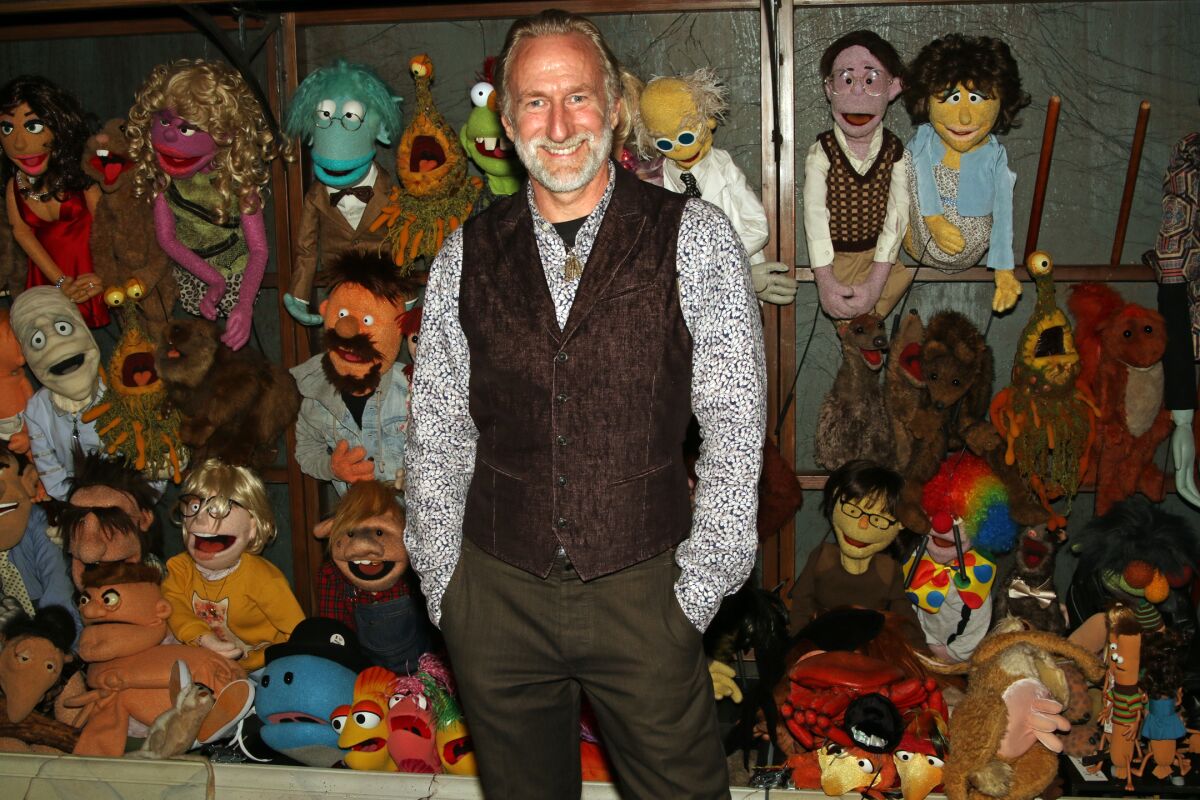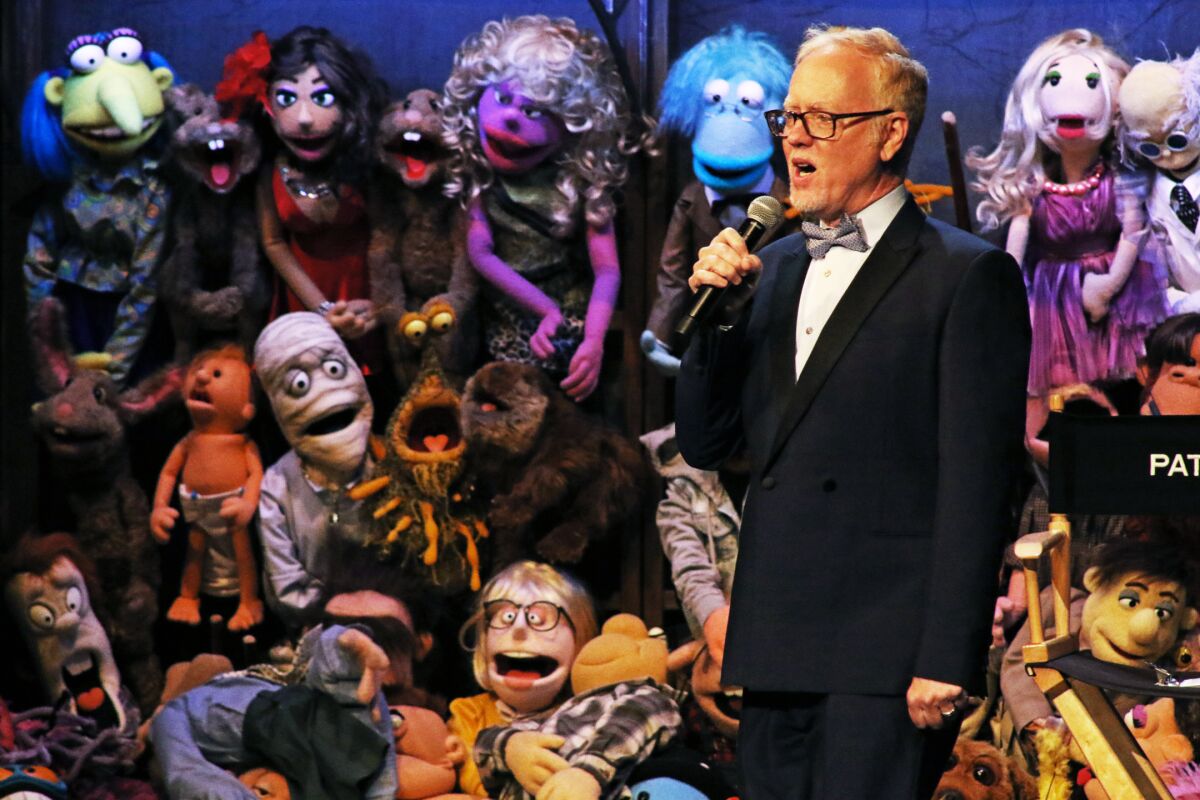The identify Henson has been synonymous with puppets for round 50 years. Lots of Jim Henson’s widespread franchises and co-productions, akin to “Sesame Street,” “Fraggle Rock,” “The Muppet Show” and “Labyrinth,” have performed key roles for generations in youngsters’s training and leisure. On the other hand, Henson was once it seems that annoyed with being basically considered a children’ entertainer.
From a few of his early TV paintings — together with the “Land of Gorch” sketches on “Saturday Night Live “— he attempted to shake the typecasting. But despite several efforts, the label generally stuck with him. After his death in 1990 at age 53, his son Brian was named president of Jim Henson Productions Inc. In 2005, after the Henson family had sold and reacquired the company, the Henson Alternative brand was launched; since then, this label has served as an umbrella for more mature content.
The first show to emerge under the new banner was “Jim Henson’s Puppet Improv,” which is referred to now, the world over, as “Puppet Up! — Uncensored.” At the eve of tickets happening sale for a order of Los Angeles-based dates in July for the widespread grownup puppet display, The Occasions spoke with creators Brian Henson and Patrick Bristow concerning the display’s starting place, the original hybrid of puppetry and improv comedy, and its L.A. roots.
The speculation to fuse improv with puppeteering originated from a coaching workout supposed to ween puppeteers from their dependence on scripts.
“One thing that I had become increasingly aware of was the puppeteers had become script-bound, literally to the point that if the performer before them missed one word in their line, the next performer wouldn’t know what to do,” Henson recalled. “And they didn’t have to memorize their dialogue because they were sticking up all of their lines around the monitors and stuff like that. … We were trying to find some other really funny tones for puppetry that sort of differentiated from the Muppet tone and sensibility [led us to try new things.]”
Henson began making an attempt fresh tactics with comedy writers, however not anything clicked instantly, partially for the reason that writers weren’t totally conscious about what puppets can and will’t do, Henson stated.
“So then I thought, ‘We’ll get together a core bunch of puppeteers, and we’ll start just discovering a new tone of comedy.’ When my dad was alive, we used to say we would get about one or two performers out of every 40 that we trained that could — [a] magic word to my father — ‘ad-lib,’” Henson stated. “My dad was a great ad-libber; Frank Oz is a great ad-libber, and that always pluses up the comedy.”
The after piece of the puzzle got here from actor Mia Sara (“Birds of Prey,” “Ferris Bueller’s Day Off”), who steered Henson that the way of comedy he was once on the lookout for was once improv — most effective he’d by no means in truth distinguishable an improv comedy display.

Brian Henson
(Scott Feinblatt)
She took him to a Groundlings display, and the entirety clicked for Henson. “Wouldn’t it be great if we could teach the puppeteers to do the magic ad-libbing that my father never thought was teachable?’” he stated. The after step was once Sara introducing Henson to actor, comic and improv knowledgeable Patrick Bristow to support Henson along with his display.
For individuals who haven’t skilled any of L.A.’s improv theaters ( such because the Groundlings, Upright Voters Brigade, Improv LA), the ensemble performers rush target market ideas of personality relationships, conditions and occupations, and improvise considerate scenes and even multi-act tales in line with the every so often tasteless choices.
Integrating this efficiency taste into puppeteering had its personal demanding situations. Henson recalled, “Patrick got together with me; we talked about [a collaboration]; and he said, ‘It’s gonna be hard because the most important rule to improv is you watch the other performer’s eyes.’ When we’re puppeteering, we all look at monitors that show us what the puppets are doing.” The pair make a workshop and met a couple of times a day for 3 hours with a crew of puppeteers, arrange a digital camera and screens within the studio, the place Bristow taught Henson about improv. Sooner than lengthy, the luck of the workshops developed into the display.
“[It turned out that] puppeteers could watch each other’s puppets and read what the puppeteer is thinking almost as well as watching another actor’s eyes,” Henson stated. “I started inviting writers to listen in on what we were doing, so they could kind of get this different sort of tempo and energy, and then Patrick said, ‘Let’s put it all up in front of an audience; let’s just do a show.’” Henson was once unwilling in the beginning; upcoming all, a longstanding custom in maximum of puppetry comes to obscuring the puppeteers from the target market’s view. However the two sooner or later made up our minds that it will be superior leisure for audiences to peer the displays, which show off the puppets, in addition to the puppeteers.
“The first show was just for friends and family on the lot; we did it in our L.A. studio, and it was great,” Henson recalled. “The reaction was really fantastic. And Patrick was right that as soon as you added a live audience, it sort of upped the stress level of the performers and sharpened up the comedy and sharpened up the entertainment value.”
The display right away started to catch on. “One of our staff invited the producers of the Aspen Comedy Festival,” Henson stated. “And they invited us to Aspen; I think that was in 2006. That was the very first time we went onstage for a public audience, and I think it had the auspicious title of ‘The Jim Henson Company’s Experimental Improv Puppetry Show.’”
Later the troupe was once invited to Edinburgh‘s Fringe Festival, Henson and company arrived at the title “Puppet Up! — Uncensored.”
“Puppet Up! — Uncensored” went on to tour multiple countries and has also gained the attention of SoCal audiences through its residencies at Knott’s Frightening Farm, which Bristow known as the abbreviated “chamber version” of the display. Henson identified that the whole display comprises spare forms of puppetry, akin to virtual puppets (animated in actual month), spare video layering performances, and reenactments of vintage Jim Henson puppet scenes.

Patrick Bristow
(Scott Feinblatt)
For the reason that improv comedy can elicit lowbrow and risqué ideas from audiences, we requested Bristow, who’s the display’s director, the level to which puppets affected the connection between performers and target market individuals. “Because it’s puppets and it’s uncensored, the audience is definitely more uncensored themselves,” he stated. “Also, regarding a lot of the risqué or the edgier humor that happens, the puppets get away with much more.”
“With a human improv performer, they’re going to hold you responsible for what you just said, in character or not, they may or may not forgive you,” Bristow persisted . “The puppets, by virtue of just being these rascals — and it being heightened and one or two degrees away from reality — they get away with murder, literally. They can murder a likable character, and the audience laughs.”
However the puppet forgivability issue, the solicitation of uncensored feedback from a family in a #MeToo international — and inside of an moment of “cancel” tradition — this invitation poses a possibility to performers whose core sensibility automatically is determined by their fearlessness to take on any and all subjects.
Bristow addressed the demanding situations of this occasion. “The landscape has definitely changed over the decades that I’ve been doing this, but I just look at it as almost another improv suggestion,” he defined. “Like, ‘Can you deliver this comedy that is palatable, that maybe still has a little bit of satiric teeth, but within today’s kind of implied limits, and make it something that everyone can laugh at and have a good time with, regardless of their politics or their sensitivity?’ That’s always the goal.
“And because it’s Henson, there’s an unspoken inclusiveness already,” Bristow stated.







